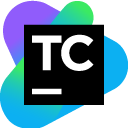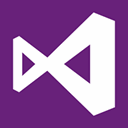The Best Jenkins Alternatives for Seamless CI/CD Workflows
Jenkins is undoubtedly a powerhouse in the world of continuous delivery and integration. As a trusted open-source service, it's been a go-to for countless developers, offering robust capabilities across various operating systems and supporting self-hosting. However, the continuous build system software sector is highly competitive, with a wealth of free CI alternatives to Jenkins available. While Jenkins' long-standing reputation for reliability is well-earned, you might be exploring other CI solutions due to a preference for a different visual identity, specific feature requirements, or simply a desire to see what else the market has to offer. Whatever your reason, this guide will help you discover the perfect Jenkins alternative.
Top Jenkins Alternatives
Looking for a fresh approach to your CI/CD pipeline? These alternatives offer diverse features, platforms, and pricing models to suit any development team's needs.

Travis CI
Travis CI is a popular hosted continuous integration service, particularly well-regarded for open-source projects. It offers support for a wide range of languages including Ruby, PHP, Python, Java, and Node.js. As a freemium web-based platform, it provides a straightforward way to implement Continuous Integration without the overhead of self-hosting, making it a strong Jenkins alternative for cloud-native projects.

JetBrains TeamCity
JetBrains TeamCity is a powerful continuous integration and build management system. It's known for its user-friendly interface and ability to quickly set up a build server, offering out-of-the-box continuous unit testing, code quality analysis, and early reporting on build problems. Available for Free Personal use, and on Mac, Windows, Linux, and Web platforms, TeamCity provides excellent Continuous Integration and Distributed build features, presenting a robust commercial-grade Jenkins alternative.

Bamboo Continuous Integration
Bamboo Continuous Integration, developed by Atlassian, helps development teams increase productivity and improve code quality through automated compiling and testing. This commercial solution, available for Mac, Windows, and Linux, offers robust features for Continuous Deployment, Continuous Integration, and Developer Tools, including multi-branch builds. It's a comprehensive Jenkins alternative for teams seeking an integrated ecosystem.

Buildbot
Buildbot is an open-source framework designed for automating software build, test, and release processes. It's highly customizable, allowing users to implement a system that perfectly matches their workflow. Available for Free use on Mac, Windows, Linux, BSD, and supporting Self-Hosted deployments, Buildbot offers powerful Continuous Integration capabilities and is Python-based, making it a flexible and open-source Jenkins alternative for those who prefer self-hosting and deep customization.

AppVeyor
AppVeyor specializes in Continuous Integration for .NET applications, helping teams streamline building, testing, and deployment. As a Freemium web-based service, it also supports Linux, offering a focused and efficient solution for developers in the Microsoft ecosystem. AppVeyor is a strong Jenkins alternative for .NET-centric projects looking for specialized CI/CD.

Drone.io
Drone.io is a Continuous Delivery system built on container technology, using simple YAML configuration files (a superset of docker-compose) to define and execute pipelines within Docker containers. This lightweight and powerful platform is distributed as a Docker image and can be Self-Hosted. As a Freemium and Open Source solution, Drone.io offers strong Continuous Integration features and is extensible by plugins, making it an excellent container-native Jenkins alternative.

Buddy
Buddy simplifies building, testing, and deploying web projects with an intuitive interface. It supports code from GitHub, Bitbucket, and GitLab, and offers deployments to various services like FTP, SFTP, AWS, and Azure. With support for numerous languages and frameworks including PHP, Node.js, Python, Ruby, and Java, Buddy offers comprehensive Continuous Integration and Continuous Deployment features. Available as Freemium, Self-Hosted, and SaaS on Mac, Windows, Linux, Web, and Chrome OS, it's a versatile Jenkins alternative with extensive integrations.

Buildkite
Buildkite helps teams automate software development processes, from testing to delivery, regardless of language or toolchain. This Commercial web-based platform, compatible with Mac, Windows, and Linux, focuses on Continuous Deployment, Continuous Integration, and Continuous Testing. Its unique hybrid cloud model allows you to run build agents on your own infrastructure while managing pipelines from the cloud, making it a flexible and scalable Jenkins alternative for complex setups.

Azure DevOps
Azure DevOps provides a complete suite of Continuous Delivery Services for teams to share code, track work, and ship software for any language, all within a single package. As a Freemium web-based service, it offers robust Continuous Integration capabilities alongside Version and Source control. For teams heavily invested in the Microsoft ecosystem or those looking for a comprehensive cloud-native platform, Azure DevOps is a compelling Jenkins alternative.

GoCD
GoCD, an open-source continuous delivery server by ThoughtWorks, emphasizes complete control and visibility over your build and deployment pipelines. Designed specifically for continuous delivery practices, it features built-in concepts essential for this approach, including pipeline modeling. Available for Free use on Mac, Windows, and Linux, GoCD offers strong Continuous Deployment, Continuous Integration, and Release Management features, making it a powerful open-source Jenkins alternative focused on end-to-end delivery.
Choosing the right CI/CD tool is crucial for your development workflow. While Jenkins has served many teams well, the alternatives listed above offer a diverse range of features, platforms, and deployment options to meet evolving needs. Explore each one to find the perfect fit for your team's specific requirements, whether you prioritize cloud-native solutions, specialized language support, or a different approach to pipeline management.